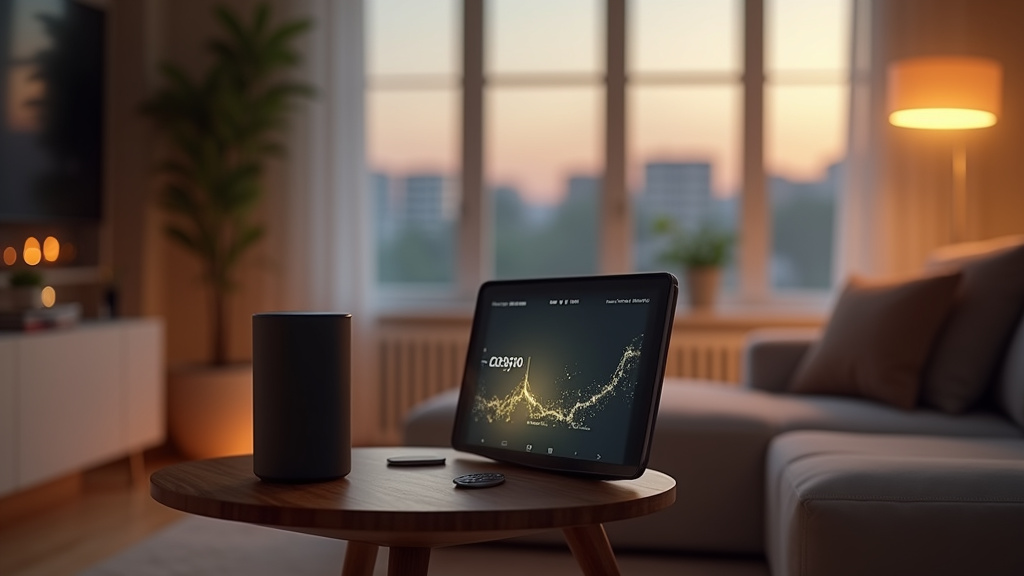The U.S. Department of Justice (DOJ) has reportedly launched a formal investigation into the artificial intelligence practices of GlobalTech Corp., a major technology firm whose dominant services underpin significant portions of the digital economy. Sources close to the matter confirmed the initiation of the probe on March 20, 2025. This action signals a significant escalation in U.S. governmental scrutiny over the competitive implications stemming from the rapid deployment of advanced AI by dominant online platforms.
The investigation reportedly centers on potential anti-competitive behavior related to GlobalTech’s integration of advanced AI models into its widely used dominant search and cloud computing services. Specifically, the inquiry is believed to address concerns that GlobalTech may be leveraging its unparalleled market share in online search to favor its own AI-powered results and services, potentially demoting or making it harder to find competing AI applications or information sources. In its cloud computing division, regulators are likely examining whether GlobalTech makes it unfairly difficult or prohibitively expensive for companies to use rival AI models or infrastructure on its cloud platform, or conversely, offers preferential terms to companies using GlobalTech’s proprietary AI services.
Examining Competitive Impact
The core objective of the DOJ’s probe is to examine whether these AI integrations unfairly disadvantage smaller rivals and stifle innovation in the rapidly evolving AI market. Regulators are concerned that GlobalTech’s ability to bundle its AI capabilities with its entrenched services could create significant barriers to entry and growth for competing firms specializing solely in AI development or offering alternative AI solutions. Critics argue that by potentially limiting the reach and viability of competing AI providers through these leveraging tactics, GlobalTech could slow down the overall pace of innovation, reduce the diversity of AI solutions available to businesses and consumers, and ultimately harm the quality and affordability of AI services.
This heightened scrutiny follows complaints filed by various organizations concerned about market concentration in the AI era, including the prominent industry watchdog “Alliance for Fair Tech.” The Alliance for Fair Tech, known for its advocacy for competition in digital markets, has publicly articulated worries that the current trajectory of AI development risks concentrating too much power in the hands of a few tech giants who control foundational infrastructure and dominant user interfaces. Their formal complaint to the DOJ likely detailed specific alleged practices by GlobalTech that they believe constitute violations of anti-trust statutes designed to prevent monopolization and unfair competition.
Broader Regulatory Context
This investigation unfolds against a backdrop of intensified global regulatory focus on the power and practices of large technology companies. Governments worldwide are grappling with how to apply existing competition laws to the unique challenges posed by digital markets and cutting-edge technologies like artificial intelligence. The DOJ’s decision to initiate a formal probe signals that U.S. anti-trust enforcers view AI as a critical area where competitive dynamics must be actively monitored and potentially protected. It suggests a willingness to explore novel applications of anti-trust law to address concerns specific to AI’s rapid development and integration.
Unlike previous anti-trust cases focused on network effects, data accumulation, or platform access in established markets, the GlobalTech AI probe dives into the complex world of algorithmic bias, model training data, and the interconnectedness of AI services with core platform functionalities. The outcome could set significant precedents for how anti-trust principles, developed in an era of physical goods and traditional services, are reinterpreted and applied to the intangible and rapidly changing landscape of artificial intelligence.
GlobalTech’s position as a leader in both search and cloud computing grants it unparalleled access to data, computational resources, and distribution channels – all critical inputs for developing and deploying advanced AI. Critics argue that this structural advantage, combined with potentially restrictive practices, could create significant barriers to entry and growth for competitors. The investigation will likely delve into how GlobalTech’s control over these resources impacts the competitive landscape in AI foundation models, AI-powered applications, and AI development platforms.
Potential Implications and Outlook
While investigations can be lengthy and may not always result in formal charges, a DOJ probe is a serious matter for GlobalTech. Potential outcomes range from closure of the investigation with no action, to negotiated settlements involving changes in business practices, to formal anti-trust lawsuits seeking remedies that could include significant fines or even structural remedies. For instance, remedies could potentially involve requirements for GlobalTech to alter its search algorithms to provide neutral access for AI-powered services, mandates regarding interoperability on its cloud platform, or rules governing the use of data collected from its dominant services for training its AI models. The specific remedies sought would depend heavily on the precise nature of any anti-competitive harm the DOJ might ultimately allege and prove.
As of March 20, 2025, neither GlobalTech Corp. nor the U.S. Department of Justice had issued official public statements confirming the investigation or its specifics. It is standard practice for the DOJ not to comment on ongoing investigations. GlobalTech is also likely to reserve comment until it has more clarity on the scope and nature of the probe. Company officials are likely consulting legal teams and preparing for potential formal requests for information (RFIs) as the investigation progresses. The process typically involves the gathering of extensive documentation, emails, internal communications, and potentially interviews with company executives and employees.
The news is expected to resonate deeply within the technology sector. Competitors, investors, and policymakers will be closely watching the developments. For smaller AI startups, the investigation could represent a potential path towards a more level playing field, while for larger tech firms, it serves as a clear signal that their AI strategies will face rigorous anti-trust examination.
The DOJ’s probe into GlobalTech’s AI practices underscores the growing tension between rapid technological advancement and the imperative to maintain competitive markets. It highlights the complex challenge regulators face in understanding and potentially intervening in fast-moving, data-intensive areas like artificial intelligence. The investigation confirmed on March 20, 2025, is poised to be a landmark case in defining the intersection of anti-trust law and the future of AI dominance. As AI becomes increasingly embedded in critical infrastructure, products, and services, how governments choose to regulate the competitive dynamics within this sector will have profound implications for economic structure, innovation, and potentially societal outcomes for decades to come.













